Pernille Ripp's Blog, page 63
December 28, 2015
How Do You Know Which Books To Purchase? A Few Tips to Help Build A Better Classroom Library
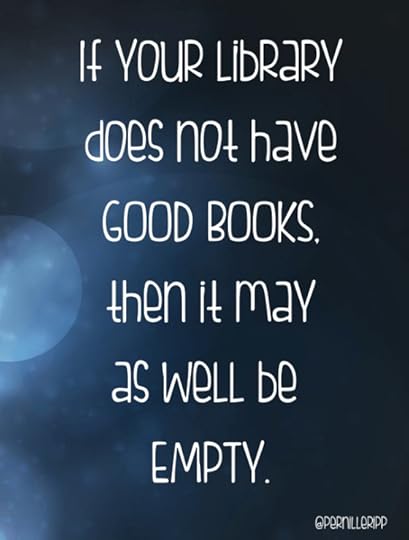 Several years ago, I had a classroom library that was filled to the brim with books. Every shelf crammed. Every space occupied, yet every independent reading time it never failed; a student would ask if they could please go to the library to find a book. I didn’t think twice about it. Of course, they could go to the library, where else would they get books? One day it finally did strike me as odd; why in the world were the students not going to our library first to see all the books there. There were great books on the shelves, there had to be, right. I mean, I am sure there was, they just had to find them first.
Several years ago, I had a classroom library that was filled to the brim with books. Every shelf crammed. Every space occupied, yet every independent reading time it never failed; a student would ask if they could please go to the library to find a book. I didn’t think twice about it. Of course, they could go to the library, where else would they get books? One day it finally did strike me as odd; why in the world were the students not going to our library first to see all the books there. There were great books on the shelves, there had to be, right. I mean, I am sure there was, they just had to find them first.
And that was exactly it; our library was full. Full of left over books I had picked up when other teachers weeded. Full of books picked up from our local goodwill store and garage sales. A few random selections from Scholastic bonus points that did not really fit my students. Full of books inherited when the teacher before me had left the room. Full of books with torn covers, broken spines, and even a few missing pages. The library was full and not a child was reading.
So I did the unthinkable; I threw out books. I got rid of all of those books that no child had read for years. The ones with the covers falling off, the ones that I wouldn’t even read. I got rid of the old, the broken, and even sometimes the new. The too mature. The unwanteds and the forgotten. And then I stood back and looked at my very empty library, wondering what to do. Because now I had an empty library and my problem was not solved. There still were no books to read.
Research says different things on how many books we need in our classroom libraries. Some say 20 books per child. Others say between 300-600 total. But the number doesn’t matter if the books are not good. So instead of focusing on quantity, I figured that was a lost cause any way since I had not won the lottery, I focused on quality. I focused on getting high interest books in the hands of my students when I could. And slowly but surely our library grew and it continues to do so to this day. So how did I figure out which books to purchase?
I asked the students. Paying attention was not enough so I started by asking them which books they liked to read. Something so simple that had the biggest results. They wrote me lists so I knew what to focus my limited budget on.
I handed them Scholastic catalogs. For all of those books that we had not read yet, I needed to know what looked good to them. So they would hand me catalogs back with books circled. If more than one child circled a book, I knew it would probably be a good buy. I also took better advantage of all of the bonus point deals from Scholastic and I told parents what my plans were. More parents purchased books so we could earn more points, and when we fell short, I funded it because let’s face it, that’s what we do as teachers.
I asked them to weed. While I had done the initial purge without them, I asked them to go through the library once more. However, this time books could be saved by students. So if a child wanted to pull a book, another child could argue to have it kept. This also had the added bonus of familiarizing the students with the books we already had and led students to talk more about books.
I started to read their books. I had been reading books of my own, but adult books, which meant I had nothing to recommend to my students. So I started by asking them what I should read and then I did. When I finished a book, I would book talk and leave it out for the kids to read. Sometimes I would hand it to a specific student that I thought of while I read it. Slowly, we started a community of book talkers that continues to this day.
I used the public library. Those librarians know a thing or two about amazing children’s books so I started to pay attention. What did they have on display? What did they recommend? I would also borrow books and read them before I decided what to buy. I still do this a lot with the picture books I buy. I also used our local book stores more; what did they have on display? What was popular for them. Use the knowledgeable people that surround you.
I became better friends with my own school librarian. I have had the honor of working with some incredible librarians that love books as much as I do. And yet, I hardly ever spoke about books with them. What a wasted opportunity. So find out who the book lovers are in your school and befriend them if you have not already. Talk books whenever you can.
I fell in love with The Nerdy Book Club. There was my tribe of people who loved books, who had to recommend books, who knew just what books to invest in. To this day, the Nerdy Book Club is one of the only blogs that gets delivered straight to my inbox so I don’t miss a single post.
I paid better attention. I started to really notice what my students were reading, what they were abandoning. We started to speak more about the books we loved and why. Then I would go forth and try to find other books like that. Creating a community of book lovers is something that takes time, takes commitment, and will not just happen on its own. The students have so much to share if only we ask them.
I found the best kept secret. I still remember the moment I was told about Books4Schools, a dark warehouse here in Madison, WI that sells brand new overstock books for less than $2. Yup. And not random titles either but books my students want to read by authors like Cassandra Clare, John Green, Rick Riordan and so many others. While their only physical location is here, they also sell online and just as cheaply. Trust me, the deals are worth it and their stock changes all of the time.
4 years ago I realized that while our library was full, it was not great. It was not something the students could use. It was not something they wanted to use. So I embarked on a journey to get better books in the hands of my students. I found a better way to spend the precious money we have to get books for our libraries. And it worked. Slowly, our library has grown to now encompass more than 2,000 books. Books that the students want to read. Books that are worn out from use and not from age. Getting rid of books is one of the best decisions I made for out library, what has been yours?
To see some of our favorite books, go here.
To read more about what we do as readers in our classroom, go here.
If you are looking for a great book club to join to re-energize you in January, consider the Passionate Learners book club on Facebook. We kick off January 10th.
Filed under: aha moment, being a teacher, books, Literacy, Reading


December 25, 2015
Purpose and Re-Purpose
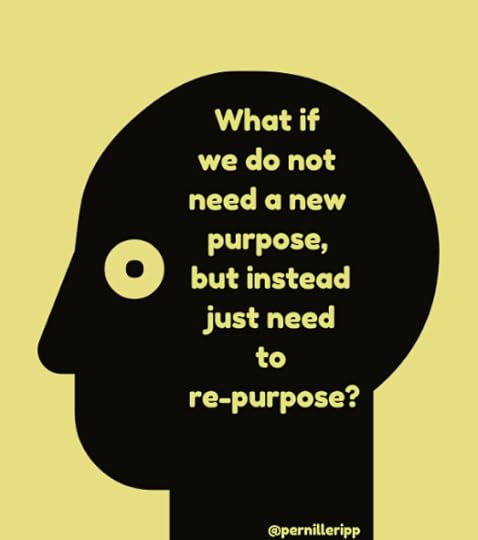
In all of our clutter and madness. In all of our piles of things. In all of our new toys, books, and unnecessary items, I seem to have found my peace. Mind you, it was not like that this morning when we left the house upside down, Christmas morning and a visit from Santa seems to do that to you. But now, after organizing, sorting, cleaning, and taking the time to appreciate all that we have, I am at peace. I am happy. Because the truth is; we really have so much. And not just in terms of gifts or newness, but in the things that still work. In the furniture we love. In the things that make this house a home.
So while this morning, I thought we needed more furniture, more bins, more things to control all of the new, I now know that it is not new that we need, it is better use of the old. It is the time to see the beauty in what we already have and find better uses for it that suits the family we are now.
And so I look to my classroom as well. How often we are enticed by all of the new and shiny. How often I assume that I need to do even more when my teachings seems off kilter, our metaphorical house a mess? That because the students surely will come back from break dragging their feet a bit, I better ready with all of the glitz. All of the glam. And in that need for reinvention is an assumption, I must throw out my ideas and replace them with something they have never tried before. Because what we are doing must be inherently broken. That what we are doing is beyond salvage simply because the components have been used before.
Today reminded me that this assumption is not true. That rather when something has been done the same way for so long, we tend to lose the purpose of it. That because it is now old, we no longer see its full potential. The wonder of it all that drew us to it in the first place.
So as I think ahead to the new year, as I contemplate ever so slowly of what my students need right now, I think of what I can re-purpose. Of what I can re-use but in a way that will make us love it again. In a way that will make us understand something deeper. Of what I can do to make it feel like a new classroom when they return, and yet also feel like theirs. Because it always has to feel like theirs or my purpose would be lost.
If you are looking for a great book club to join to re-energize you in January, consider the Passionate Learners book club on Facebook. We kick off January 10th.
Filed under: aha moment, Be the change, being a teacher, new year


December 19, 2015
Someone’s Beginning
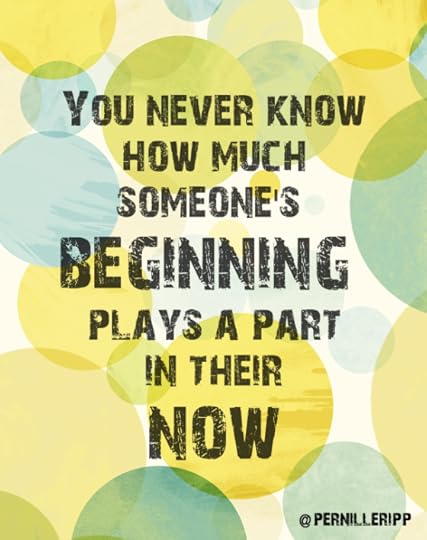
You wouldn’t know by looking at me that my body is broken. That for years we tried to have a child, only to fail. That it was not until the doctors intervened that my body finally worked for a little bit, enough to have Theadora. Enough to give us the biggest gift one can get. We thought I was fixed, but I wasn’t. We lost one in between Theadora and the twins; a dream disappeared followed by so many unanswerable questions. For years we hoped, and for every pregnancy I had, sadness, fear, and the unknown seemed to come along.
You wouldn’t know that my youngest daughter, Augustine, really should not be alive. That her conception should not have been possible. That my body did everything it could to get rid of her. That she was born almost 10 weeks early, 2 years ago today. That she was born so fast that the nurse caught her and rushed her away from us. You wouldn’t know that for 6 weeks our breaths were held as she fought to grow in the NICU. That the beeps and the alarms followed us home and I would wake in the middle of the night, wondering if she was breathing. That when we left the NICU with her, she weighed 5 pounds and I thought the doctors had made a mistake; surely something this fragile could not be ok.
But she is. She is strong. She is bright. She is stubborn. She is ok.
When she goes to school, no one will know how fragile her beginning was. When she goes to learn, no one will know that we were told that she may have learning disabilities because my body forced her into this world too early. Nobody will know how many brain scans she had to have to make sure that there had been no damage.
Every child that comes to us has a beginning. A story we do not know. A story that may still shape them to this day. A story that is hidden and yet still plays a part in their life.
Don’t forget the story. You never know how much someone’s beginning plays a part in their now. We do not just teach children for one year, but we teach them for all of their years. Even the years, we did not know them.
Happy birthday, Augustine. May you continue to astonish us with your strength, your spirit. May you continue to be perfectly average, because we never wanted anything more.

If you are looking for a great book club to join to re-energize you in January, consider the Passionate Learners book club on Facebook. We kick off January 10th.
Filed under: being a teacher, being me


December 18, 2015
There/Their/They’re – A Small Trick
I have been conferencing one-on-one exclusively with my students for the past 2 weeks and one of the things I come across again and again is their inability to distinguish between there/their/they’re; a problem I know many educators run into. Today, a student and I realized this simple trick, the other students loved it, so I thought I would share it.
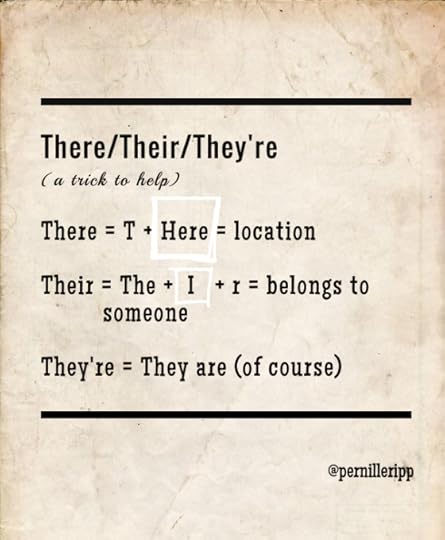
If you are looking for a great book club to join to re-energize you in January, consider the Passionate Learners book club on Facebook. We kick off January 10th.
Filed under: being a teacher


December 17, 2015
The Questions to Ask When The Kids Aren’t Reading

I met my first book abandoner my very first year of teaching. Yet, he was not your average run of the mill book abandoner. No, he was the “look you straight in the eye and ask you what you are going to do about it” kind of abandoner. So I did what I knew best; forced him to read the book and not allow him to abandon it. And he did what he knew best; fake read for a good amount of time, skimmed a few pages, and failed the book report as well as the presentation. Repeat with every book. I don’t think he ever read anything beside Diary of A Wimpy Kid that year.
Everyone has these types of readers. The ones that abandon because they hate to read. The ones that abandon because they cannot find a great book. The ones that abandon because they get bored. Some years we have a lot, others not so many. So how can we heal break the abandonment cycle? How can we help these kids help themselves. Well, there are a few questions we can ask.
Do they have choice? Because if they don’t, then that is the very first place we start. And not limited choice based on levels or lexiles, but real honest-to-goodness choice where they get to pick their reading materials.
Do they have time? If little time is given to reading then we are expecting them to do something they may not like outside of school. The chances of that happening are pretty slim.
Do they have access? We know that students need great books in their hands. We know students need great libraries, but they also need books in our classrooms. And not old, worn out books, but new, enticing, high interest books that they can check out easily.
Do they have people? Is it cool to not be a reader in their friend group? Who do they have to talk books to? Do they have reading role models that extend beyond the teacher? Get them connected in a meaningful way with others that read.
Do they have reason to read? And by that I don’t mean because of a prize or a reward. Do they see any kind of gain from reading? Is anything positive connected to the art of reading?
Do they have different ways to read? Reading is not just done with our eyes but also with our ears, so if a child is constantly abandoning books get them hooked with an incredible audio book. This has changed the reading path of several of my students in a profound way.
Are they hiding their true ability? I have taught several students that could ace their reading assessment, mostly because it had been given to them so many times, and yet had a large gap in their skills. So is their book abandonment masking a larger problem?
Are we making them do things that kill their love of reading? When students abandon books a lot, it is a sure sign that we need to reflect on our own practices. And not just skim over that reflection and pretend that everything must be ok. Are reading logs killing their love of reading? Are programs liked Accelerated Reader or LLI?
Have we asked them? This is the biggest because too often we try to figure out why a child is abandoning books and we never ask them why. Not beyond the “What didn’t you like about it?” So instead we must give the students a chance to discuss or reflect and really start to study their own habits. What patterns do they see? What types of books might they like to read? What can they do to change their habits? Students need to feel empowered in their self-reflection because otherwise their pattern won’t change. They also need to set goals and then be able to honestly assess their own progress.
If you are looking for a great book club to join to re-energize you in January, consider the Passionate Learners book club on Facebook. We kick off January 10th.
Filed under: aha moment, being a teacher, being me, Literacy, questions, Reading, student choice


December 16, 2015
The Books I Am Giving As Gifts
While I made several book gift lists this year, I thought I would share the books that I am giving personally to my family. the books that took my breath away, the books that I know will make a difference to them and provide them with an incredible reading opportunity.
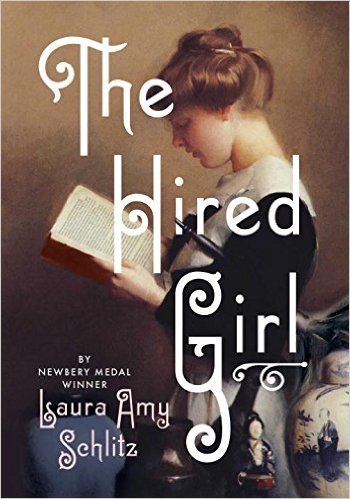
Laura Amy Schlitz’s The Hired Girl will be handed to the woman who loves historical accounts and likes to learn more about the past.

For the brother-in-law that loves to think deeply about the world, Neal Shusterman’s incredible Challenger Deep will hit all of the right notes. Bonus is that he saw me reading it and asked a lot of questions.

For the mother that taught me to stand up for all that I believe in and not to give up even when the world seems against you, another Neal Shusterman book; Unwind, the incredible first book of his series.
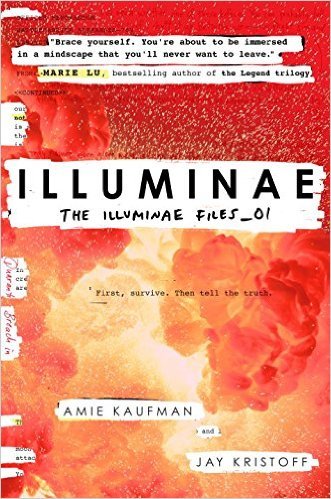
For the brother that loves a great page turner, especially one that involves the covering up of warfare, crazy diseases and just got engaged so a little bit of love is ok, Illuminae was an easy choice.

For the brother who introduced me to the wonders of Neil Gaiman and loves his comic book art as much as I do, Holly Black’s dark and amazing Coldest Girl in Coldtown made all the sense in the world.
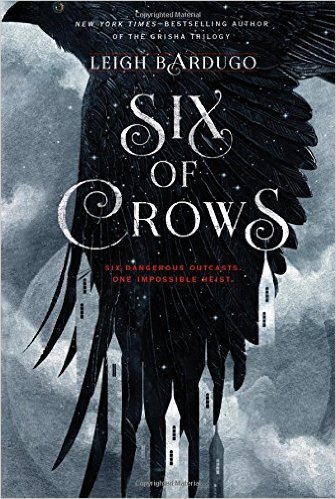
For the brother that told me to read Harry Potter when he was only 8, I know get to tell him to read Six of Crows by Leigh Bardugo knowing that he will fall into the fantasy world as much as I did. And then he can wait on the sequel along with me).

For the sister-in-law studying human psychology as she prepares to be a hospice nurse, Joelle Charbonneau’s masterful page turner Need was an easy decision.
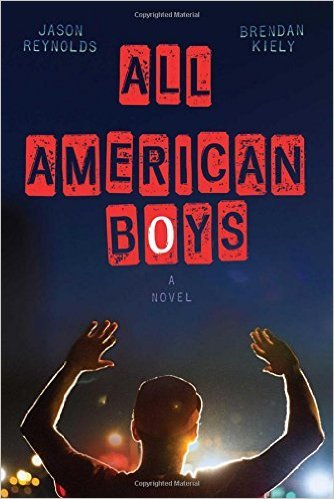
I could have given All American Boys by Brendan Kiely and Jason Reynolds to every single person on my list but thought I would diversify. Instead my brother’s girlfriend will be the lucky receipient of the must read book of the year.
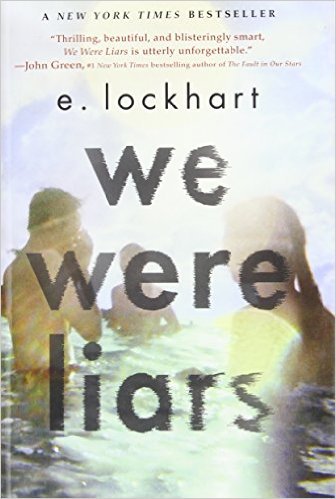
To my future sister-in-law who has brought nothing but love to our family, I wanted to give her a great book that would leave her guessing until the shocking conclusion. E. Lockhart’s We Were Liars was the perfect fit.
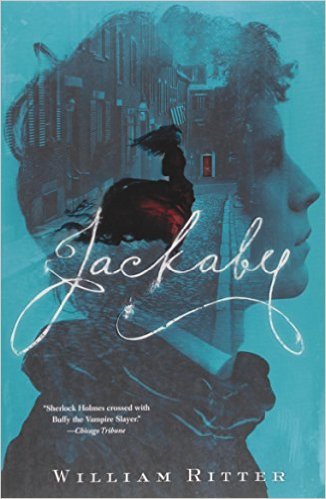
To the brother of my brother-in-law who loves a great mystery and also happens to be British, Jackaby by William Ritter is the perfect choice. This book happens to be great for any Sherlock Holmes or Dr. who fans out there, no matter their age.

To my sister who works as a domestic abuse advocate, the heart-wrenching story of Joseph in Gary D. Schmidt’s Orbiting Jupiter is sure to make her read all night. This is another book I could give to everyone on my list.
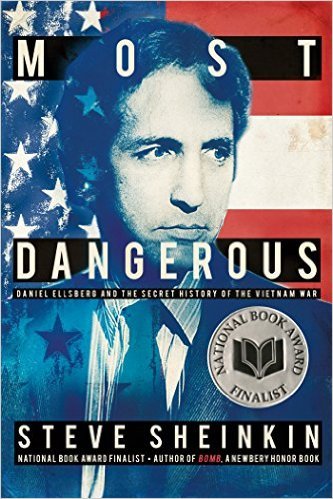
To my dad, who is still an old hippie at heart, who lived through the Vietnam Era, Steve Sheinkin’s latest page-turner Most Dangerous is a guaranteed fit.
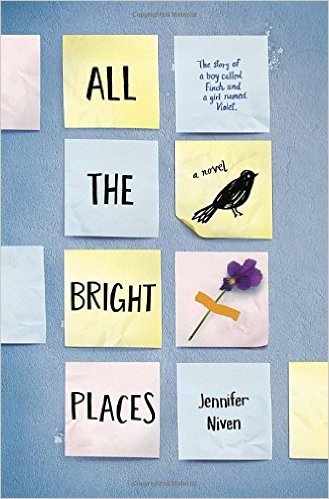
To my other future sister-in-law whose degree is in social work, who cares so much about others, All the Bright Places by Jennifer Niven will probably make her cry but then make her think.
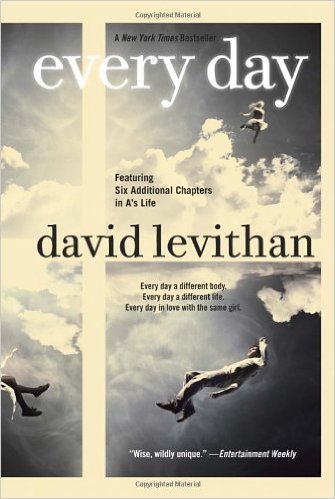
And finally to my step-brother who served 2 tours, who does not mind escaping into a great book as he finishes his nursing degree, the incredible Every Day by David Levithan.
All of these books are books I have loved and I hope my family feels that. I hope they know that selecting just the right book is not a chore, but instead a privilege. Which books will you be giving as gifts?
PS: Here are my lists of books as gifts
Some Picture Books to Give As Gifts
Some Great Middle Grade Books to Give As Gifts
Some Great YA Books to Give As Gifts
If you are looking for a great book club to join to re-energize you in January, consider the Passionate Learners book club on Facebook. We kick off January 10th.
Filed under: being a teacher, books, Literacy, Reading


December 15, 2015
How Do We Know Who We Don’t Even Know?

I think I teach 128 students this year but I haven’t done the math. There is a lot of them. I know all of their names, have since the first week. I know their writing styles, their book preferences, I know who will avoid me and who will seek me out. I teach 128 students but am not connected to 128 students. I have those that I am closer to. That I joke around with, that come to me asking for help, that leave me notes, that I have nicknames for. I have the ones I truly consider my kids, the ones I consider mine.
Call it the curse of teaching a lot of students, but no matter how much you try, not every kid will become connected to you. That is why I am thankful for my incredible team; I know how much they care about the kids we teach, I know they have “their” kids too that they feel close to.
And yet, in all of those connections, we know that there are kids that do not “belong” to anyone. That do not have a special relationship with a teacher. And by now those kids that we haven’t quite built a relationship with are starting to fall through the cracks.
So what do we do? How do we know who we don’t even know? How do we as a team, whether school-wide, grade-level or in some other configuration figure out who those kids are that nobody is seemingly connecting with? Well, there is a simple way to find out, and no, I did not come up with this idea but wanted to pass it on.
Put all of their names on a big piece of paper and hand every teacher a marker. Put a dot next to those kids who you feel you have a closer relationship to. Then stand back and look. Who has no dots? Who has just one? Discuss those kids. Pay special attention, make a list, and the next time you teach them, ask a question not related to school. Not related to the work. Not related to what you share already. Do it the next day, and the next day. Pick a few kids at a time if there are too many. Invest your time, and not in a forced way, but in a human way. don’t force a relationship, but dedicate time to giving one a chance.
As my brilliant colleague, Reidun Bures (follow her at @ReidunLee) pointed out today, “We don’t see our own patterns of who we speak to. We get comfortable and then wonder why some kids don’t respond to us as well.” And she is right; we all try to connect with all of our kids and don’t see the ones we haven’t quite connected with. Not seeking them out becomes a part of our pattern. But it doesn’t have to be that way. All kids should have at least one teacher that has their back, one teacher to fall back on. And the first step is to grab a marker and make a dot. And then do something with the result.
If you are looking for a great book club to join to re-energize you in January, consider the Passionate Learners book club on Facebook. We kick off January 10th.
Filed under: aha moment, Be the change, being a teacher, connect, Student, Student dreams


December 13, 2015
On Reading Logs
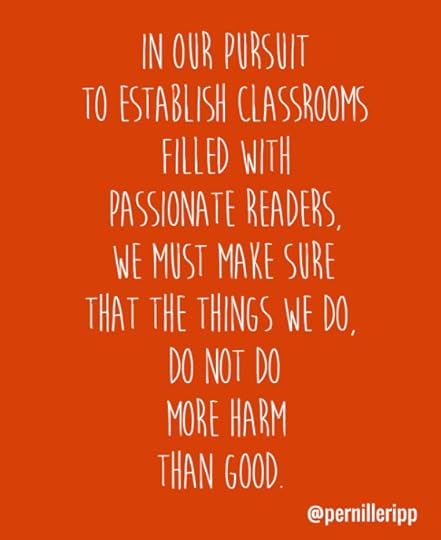
I write this post not to shun, not to rage, and not to put down. I write this post not to say what is right or wrong, but instead to add a little tiny piece to the ongoing discussion of where reading logs may or may not fit into our classrooms. Of the damage and the usefulness of reading logs. This is not a post with absolutes, or at least, I don’t think it will be. Instead it is a post meant for discussion.
I have written before on my complicated relationship with reading logs; from being a teacher who demanded all students fill them out, to a teacher who threw them out, to a teacher who was asked to use them as part of their teaching, to a teacher whose students asked them to stop, to a parent who has signed them. I have written about what to do instead of a reading log. But I have never written about how to use them better. Because I don’t like reading logs, there I said it, but at the same time, there are so many teachers that do, great teachers that care about children’s love of reading, and there are even teachers that have to use them. And I don’t feel that shaming others will further the conversations.
My biggest issue with reading logs comes from the inherent lack of trust that they communicate; we do not trust you to read every night, we do not trust you to read long enough, we do not trust you to grow as a reader, so fill out this paper instead. And while I could write a whole post on that, I think Jessica Lifshitz did a much better job on it than I ever will.
And yet, I also see the value in getting a window into the reading lives of a student. I see the value of having students understand their own reading habits so they can figure out how to grow. To mine their own data so to speak in order for them to discover new patterns and new goals. So what can we do, if we have to use reading logs (or we want to) to make them better for students?
Ask the students. Ask the students their feelings on reading logs and consider their feedback carefully. If most of your students think this tool will help them become stronger readers then work one out with them. For those that are opposed to them, figure something else out. If we truly want students to fully embrace the opportunities that we say can be found within a reading log then we need to make sure they have buy in as well. Create reading logs that are meaningful to the students, which means that they will probably look different from year to year, based on the students we teach.
Ask the parents. I will flat out tell you that I will sign whatever I have to from school. I will not count the minutes, I hate writing down titles because we read a lot, and I do not see much value in her logging her reading every night. If you want proof, ask me in an email or in conversations, but do not make me sign a piece of paper. If some parents like reading logs then by all means work out a system with them, but exempt the other parents since more than likely they will probably not be invested anyway.
Differentiate. For the kids that do want a reading log, find out what it is they would like to gain from it. I have a few students that love coming in every Monday and writing down the titles of the books they read or abandoned over the weekend (that is all they keep track of plus a rating). For those kids their record keeping is a way for them to remember what they have read and whether they liked it or not. They do not keep track of minutes or anything like that, we discuss that in our written reading reflections that we do once in a while or face to face. So find out what it is that the students like about logging their reading, if it is the reward that is attached to it then that should be a huge warning sign.
Keep it in class. When I had to do a reading log in my former district, we kept it in class. Students were asked to write down title and for how long they were focused on the book right after independent reading. That way, organization and parent follow up were removed from the equation and all kids (and me) were following the district expectation.
Stop rewarding. If reading logs really are meant as a way to investigate ones’ own reading habits then stop tying in rewards with them. The reward is in the reading, not the ticket, not the pizza, not the trinket. Ever.
Make it an experiment. If you like using reading log to find out student habits, then do it as a 2 week experiment with all students. Have them for 2 weeks keep track of when, where, what, and how much they read and then have daily or weekly conversations and reflections on what they discover. Set tangible goals from that. Do it periodically throughout the year if you really want this to be seen as a learning opportunity, that way students can see a value in tracking their reading life this way. If you have them do it all year, most students lose interest and will not see it as an opportunity to grow but just as one more thing to do.
Leave time for reflection. Rather than log, we reflect. My students set monthly reading goals and then at the end of the month they reflect on how they did. The students and I will meet and discuss formally and informally and this is what I use for my vantage point into their reading life. I ask them to tell me what they are working on and they do.
Don’t forget the purpose of reading logs. If the purpose is to help students grow as readers then make sure that the very act of filling out a reading log, with or without parent signature, is not damaging that purpose. It is often when we set up more processes for students in order to help them read better that we lose them as readers. When kids spend more time doing things attached to reading, rather than the act of reading we have a problem.
In the end, in our pursuit to establish classrooms filled with passionate readers, we must make sure that the things we do, even little parts of our day like reading logs, do not do more harm than good. That we fit our processes around our students, rather than the other way around. That we continue to debate, question, and consider as we decide what to invest our time in. And that we always, and I mean always, ask the students what they think. Even the little ones, they have a voice that matters too.
For all my ramblings on reading logs, here is where to start.
If you are looking for a great book club to join to re-energize you in January, consider the Passionate Learners book club on Facebook. We kick off January 10th.
Filed under: aha moment, being a teacher, being me, books, Literacy, Reading


December 11, 2015
This Is For the Ones
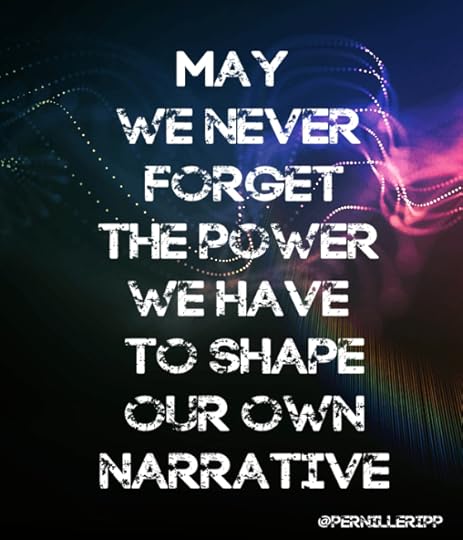
This is for the mothers that worry about their children and how they will do in school. This is for the fathers that lay awake hoping that their children will be loved. For the grandparents that believe. For the families that see the good every day, every moment, even when we know we are sometimes fooling ourselves.
This is for all of us that hope every night that tomorrow our child will have the best of days. That tomorrow their day will be filled with moments where they feel cared for. Where they feel loved. Where they feel they belong. Where they feel that even if they screw up, they will be forgiven. That even if they fail, they will have room to try again.
That their past mistakes will not chart the path of their future.
That their moments of poor decisions will not define who they are.
That others will see the good like we see the good.
This is for the teachers that ask us parents how they can help rather than judge.
For the teachers who call, not because they want to scold, but because they want to know more.
For the teachers who reach out. For the teachers who ask. For the teachers that see every day as a new beginning rather than a continuation of poor past behavior.
This is for you. For all of you. For those who refuse to have the outside world shape the narrative of their child. For those that help us be better so that our kids can be better.
For those who believe that while we cannot change the teachers our children have, we can change the narrative that surrounds our children. That our words carry power. That our words are a shield. That when we speak the truth, even when its ugly, we let others see the beauty that we see in our children, even when they screw up, even when they are less than perfect.
This is for all those former bad kids, whose label preceded them in school.
We have power. Our words have power. Let’s never forget that. Let’s never let our children forget.
If you are looking for a great book club to join to re-energize you in January, consider the Passionate Learners book club on Facebook. We kick off January 10th.
Filed under: Be the change, being a teacher, being me


Planning for Flow in the Classroom
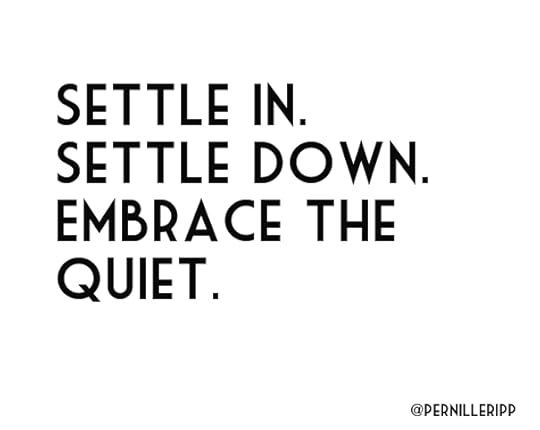
Our classroom has been silent the last few days. A stillness surrounding the students as they sit in thought, only interrupted by the occasional whisper. I have felt rather useless, not teaching, barely speaking, and yet. That stillness has been a sight to behold. The stillness has been profound as students have sunk deeper and deeper into the work asking me to not interrupt. Asking me to let them work. And I have listen, and I have watched, in awe of what has unfolded.
My students have reached a state of flow. That mental state where you are fully immersed in what you are doing and your brain is working optimally. That zone that we teachers hope to develop every day so that students can learn deeply. Yet ask most teachers whether their students reach flow daily or even weekly and they will tell you no. Their days are too disjointed, we have too much to cover, too many things to do. It seems as if we don’t have time for deep thinking these days.
So what changed in our room these past few days? What changed for it to become this way?
I stopped doing an all class mini-lesson. Instead, I have been pulling kids one-on-one as we work on their specific need. The children that need extra support sit close by every day so that I can support them whenever they need, others come to me for help or I come to them. That doesn’t mean there is no need for mini-lessons, just not right now for this unit.
We brought in music. I always marvel at the students that can work intently while listening to music, yet year after year, I see it happen. So some students listen to music as they work, submerged into their own world the music allows them to shut everything else off. It heightens their focus, even though I will never understand how myself. Music allows works wonders for those that tend to interrupt, they focus on their music rather than others.
They sit where they want and work how they want. Some students are inn bean bags, others move tables. I have a students that goes to the team area every day to work. Some type, others write. Choice surrounds us as students figure out how they work best and it allows them to get comfortable.
I spoke more quietly. I can be rather loud as a teacher, so lowering my voice was not something that I often remember to do, but in doing so I have modeled it for my students. They know to whisper, they know to not disturb others.
We speak for a few minutes before we start. As students get ready, as students get settled, instructions and reminders are given. And then I say, “Settle in, settle down.” I repeat as necessary, almost like a mantra, as the quiet slowly takes over the room.
The lights are off or low. I have the most amazing window that allows a lot of natural light in. Most days we have no overhead lights on and the simple dimness of the room signals to the students that we are in a quiet work zone. The feel of the room from the moment they enter allows them to transition into the quiet, into the deeper thinking zone.
I don’t interrupt. If a child is deep in thought, I think before I conference with them. Perhaps today is not the day to check in, perhaps a glance over their shoulder is enough? Too often our helpfulness interrupts flow rather than enhances it. I leave a note for myself of who I need to meet with and keep track with check-marks. I confer with every child every few days, sometimes just not on the day I had intended.
The first day we reached the state of flow, I was giddy, and yet also filled with trepidation, would we be able to reach it again? When it happened again the following day, I started to pay attention. The words of my students continue to surround me; let us work, give us time, teach us individually if you can. and I try, and we work, and every day I marvel at the quiet, thankful of the thinking that is happening around me.
Note: I’m co-writing a book with John Spencer about flow in the classroom and student engagement. Go read his blog for great ideas on how to create environments where students are engaged. Then go and check out any of his projects to be inspired further.
If you are looking for a great book club to join to re-energize you in January, consider the Passionate Learners book club on Facebook. We kick off January 10th.
Filed under: aha moment, being a teacher, student choice, student driven, students teach me





